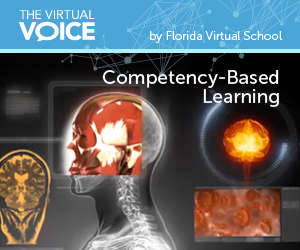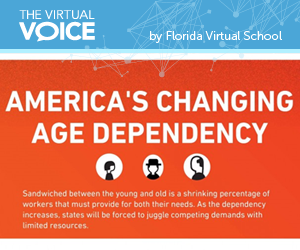Policy
Benefits of Competency-Based Learning
By Guest Blogger on December 7th, 2015
 One of the common symptoms of leukemia is a significant decrease in functional white blood cells.
One of the common symptoms of leukemia is a significant decrease in functional white blood cells.
Which components of nonspecific and specific immunity will be negatively affected by leukemia? Which components of the immune system will remain unaffected?
Can you answer that? My guess is that many of you reading this post cannot answer it AT THIS TIME. That’s because you haven’t been able to learn all of the necessary information to understand the question and process it to result in an answer. In some cases, that’s what happens to students in a brick-and-mortar classroom based on a traditional 180-day school calendar.
Students try learning the preceding information, but the teacher must move on in the lesson to meet the seat-time based school-year plan before each student can master the content, potentially leaving a student without the skills to answer correctly. Continue reading
Two Big Priorities in America
By Guest Blogger on February 17th, 2015
 Health care and education – two big priorities, important to all Americans.
Health care and education – two big priorities, important to all Americans.
The two often compete for dollars in state budgets. I recently read Turn and Face the Strain: Age Demographic Change and the Near Future of American Education by Dr. Matthew Ladner, Senior Advisor of Policy and Research for the Foundation for Excellence in Education.
I was impressed to learn how the two can work together to secure a better future. Intrigued? Continue reading
The Missing Piece
By Guest Blogger on July 15th, 2014
 Have you ever put a puzzle together only to find out that the last piece or two are missing? Without all of the pieces, you can’t see the whole picture, not to mention the frustration felt from being unable to achieve your goal. Think of education as a puzzle. There is a piece for each different component, but the “access to Wi-Fi” piece is either broken or missing completely.
Have you ever put a puzzle together only to find out that the last piece or two are missing? Without all of the pieces, you can’t see the whole picture, not to mention the frustration felt from being unable to achieve your goal. Think of education as a puzzle. There is a piece for each different component, but the “access to Wi-Fi” piece is either broken or missing completely.
In this day and age, students need Wi-Fi access at school. It’s as simple as that. They deserve education tailored to preparing them for their future, and that involves newer technologies. Whether they are taking an FLVS virtual course during the school day or needing to access the Internet for a biology project in a traditional classroom setting, Wi-Fi can strongly enhance the learning experience as it allows much more access to a variety of tools. Continue reading
